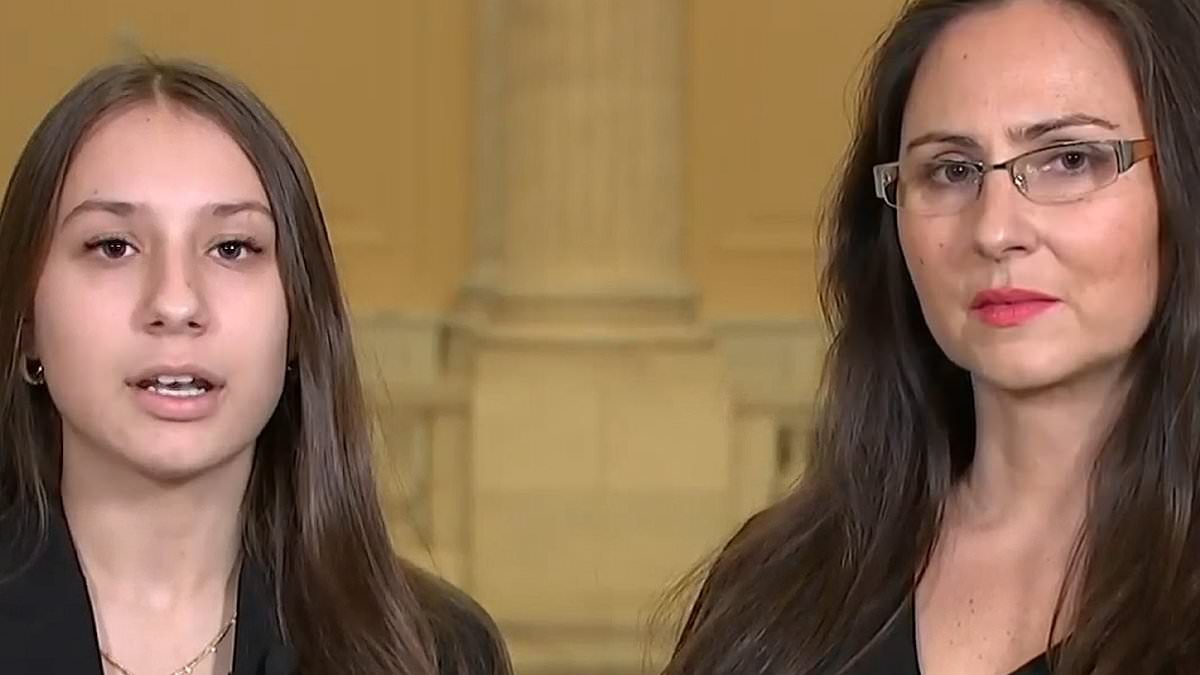More than 415,000 pornographic deepfake images were uploaded to the internet last year – but only six states have outlawed the creation and distribution of such content.
This failure of the law to keep pace with the real world lays bare how the perpetrators who create fake sexual images, and the websites which publish them, largely go unpunished.
Meanwhile, victims who are depicted without consent have their lives turned upside and must fight to have the humiliating content removed from the internet, which can be nigh on impossible.
The issue of the rise in deepfake porn received renewed attention this week after AI-generated explicit images of Taylor Swift were published by a porn website and shared widely on X. The creation and distribution of the content was likened to a form of sexual assault.
But it’s not only celebrities who are depicted in these fake images, which can be easily made using online AI tools which charge a small fee. Moms and schoolgirls have also fallen victim to the cruel trend.

The issue of the rise in deepfake porn received renewed attention this week after AI-generated explicit images of Taylor Swift were published by a porn website and shared widely on X

A 14-year-old girl from New Jersey who was depicted in a pornographic deepfake image created by one of her male classmates is now leading a campaign to have a federal law passed. Francesca Mani (right) and her mom, Dorota Mani (left), have criticized the lack of legislation
So how is it that perverts with only limited technical skills can create and share this content with impunity?
The answer lies largely in the lack of laws to prosecute those who make such content.
There is currently no federal legislation against the conduct and only six states – New York, Minnesota, Texas, Hawaii, Virginia and Georgia – have passed legislation which criminalizes it.
In Texas, a bill was enacted in September 2023 which made it an offense to create or share deepfake images without permission which ‘depict the person with the person’s intimate parts exposed or engaged in sexual conduct’.
The offense is a Class A misdemeanor and punishments include up to a year in prison and fines up to $4000.
In Minnesota, the crime can carry a three-year sentence and fines up to $5,000.
Several of these laws were introduced following earlier legislation which outlawed the use of deepfakes to influence an election, such as through the creation of fake images or videos which portray a politician or public official.
A handful of other states, including California and Illinois, don’t have laws against the act but instead allow deepfake victims to sue perpetrators. Critics have said this doesn’t go far enough and that, in many cases, the creator is unknown.

The finding that 415,000 deepfake images were posted online last year was made by Genevieve Oh, a researcher who analyzed the top ten websites which host such content. Oh also found 143,000 deepfake videos were uploaded in 2023
At the federal level, Joe Biden signed an executive order in October which called for a ban on the use of generative AI to make child abuse images or nonconsensual ‘intimate images’ of real people. But this was purely symbolic and does not create a means to punish makers.
The finding that 415,000 deepfake images were posted online last year was made by Genevieve Oh, a researcher who analyzed the top ten websites which host such content.
Oh also found 143,000 deepfake videos were uploaded in 2023 – more than during the previous six years combined. The videos, published across 40 different websites which host fake videos, were viewed more than 4.2 billion times.
Outside of states where laws which criminalize the conduct exist, victims and prosecutors must rely on existing legislation which can be used to charge offenders.
These include laws around cyberbullying, extortion and harassment. Victims who are blackmailed or subject to repeated abuse can attempt to use these laws against perpetrators who weaponize deepfake images.
But they do not prohibit the fundamental act of creating a hyper-realistic, explicit photo of a person, then sharing it with the world, without their consent.
A 14-year-old girl from New Jersey who was depicted in a pornographic deepfake image created by one of her male classmates is now leading a campaign to have a federal law passed.

Francesca Mani and her mom, Dorota Mani, recently met with members of Congress at Capitol Hill to push for laws targeting perpetrators
Francesca Mani and her mom, Dorota Mani, recently met with members of Congress at Capitol Hill to push for laws targeting perpetrators.
Francesca, a student at Westfield High School, and several of her classmates were depicted in the images, which surfaced in October.
The boy who made the pictures was suspended but returned to school just days later. A police report was also filed but it is not believed any action was taken.
Francesca told News Nation: ‘What happened to me was not okay. On October 20, me and a few other classmates had AI nude photos by other classmates.
‘At first I felt helpless and then I got mad about the lack of legislation and lack of AI school policies.
‘But now today I got to talk to congress people and I just feel super empowered knowing that I’m helping making a change.’
Her mom added that currently legislation is ‘not enough’ because ‘AI is not mentioned’ in any existing laws at federal level.
